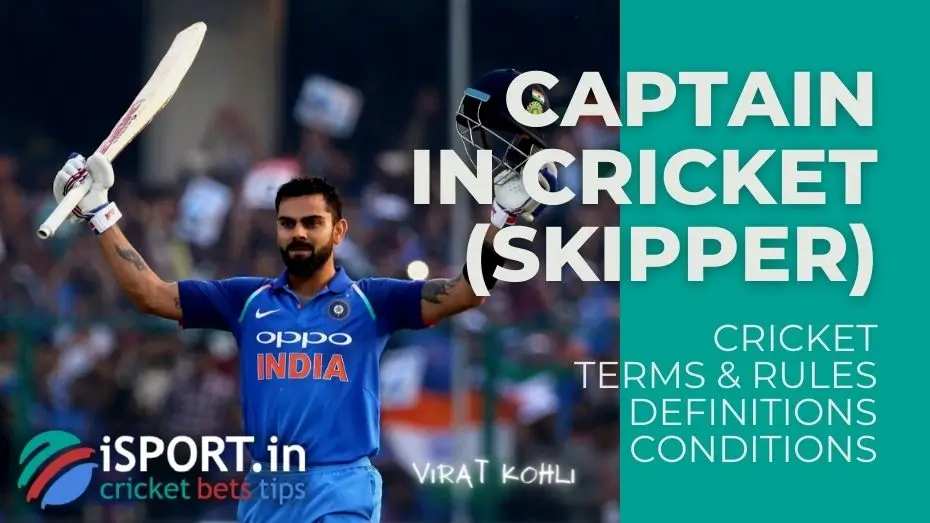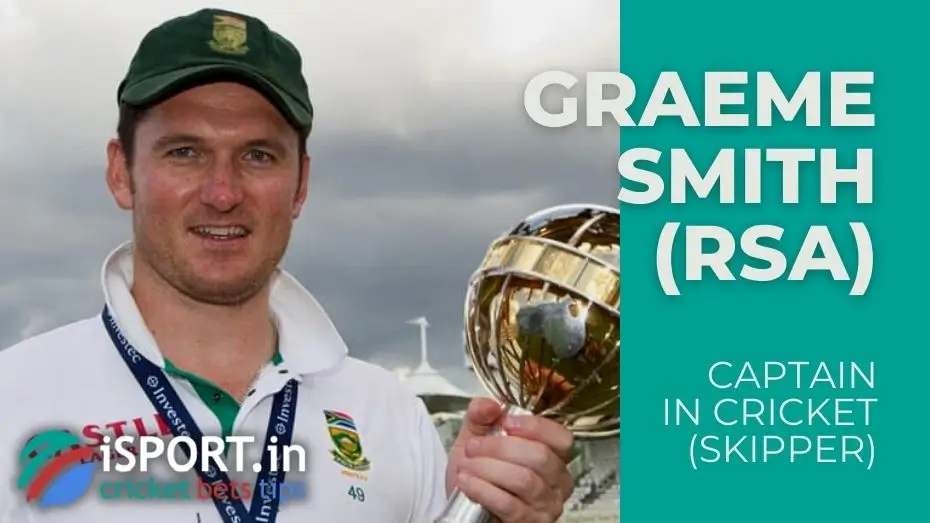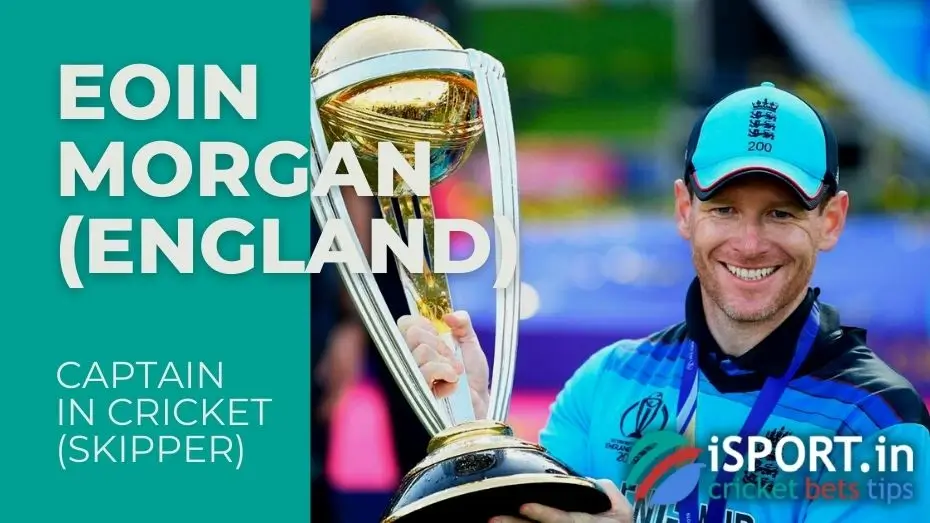Captain in Cricket

In any team sport, there is such a position as captain in the team. He has a great responsibility for the outcome and result of his club’s game. A good Captain in Cricket is very important for the team. He must support the team’s competitive spirit in any situation, remain calm and make the right decisions. Depending on the format of the game, different cricketers can be captains in cricket. They also have their own assistant – vice-captain. Find out who is the Captain in Cricket and what functions he performs during the game.

Captain in Cricket (also Skipper) – an important role of the player
The Captain in Cricket is the main player on the field. He has several additional functions and responsibilities than other players. Usually, a more experienced cricketer is appointed as the captain, especially the one with very well-developed communication skills. If the captain understands the tactics of cricket perfectly, builds strategies for the game – this is a very good basis for the successful game of his team. Usually, the team on the field decides all the points together, but the captain has the last word.
Let’s analyze the main duties of a Captain in Cricket:
- First, before the game, the captains determine the quality of the field. If it rained shortly before the start of the match and the field remains wet, the captains, together with the judges, determine the future fate of the game.
- Before the game starts, the captains participate in the draw. A coin is tossed by the captain, on whose field the game will be taken place. The winning cricketer determines what his team will do: bat or bowl (usually, the decision depends on the state of the field, the probability of worsening weather conditions, etc.).
- The Captain in Cricket, consulting with the bowler, determines the places where the fielders will stand. The position on the field is usually determined by the type of bowler and the team’s attitude to the game. These places can change constantly. The captain also determines the location of the wicketkeeper.
- The designated Captain in Cricket is also determined in the selection of the bowler. If he sees that the batsman easily copes with the bowlers’ innings, the Captain in Cricket can replace him, appoint an alternative or non-standard bowler to unsettle the opponent.
- When a team hits the balls (a player with a bat comes out), the Captain in Cricket decides the order in which the batsmen will come out. Usually, this is determined in advance, but during the match, everything can change. Initially, at the beginning of the game, the weaker batsmen hit the balls. The captain monitors the situation and, when necessary, releases experienced cricketers who can play more riskily.
- The Captain in Cricket has the right to call an innings over at any time if he feels that his team has scored enough runs or has decided that it is better to bowl than to bat at the moment.
- In addition to the main decisions, captains are often responsible for the functionality of the club. They determine when the team will train, for how long, indicates the order of training. He has the right to vote in the formation of the team, who to point out in a positive or negative way.

Captain in Cricket (Skipper) – interesting information
Every Captain in Cricket has an assistant – a vice-captain. He is also an important player of the team. This is especially noticeable when the main captain is forced to leave the field during the game, and all the main duties are transferred to the vice-captain. Often the club management appoints as vice-captain the person who will take the place of the main Captain in Cricket in the future.
In cricket, you can hear the captain called skipper. In Dutch, skipper translates as a ship. Therefore, a skipper is a person who is in charge of the ship, that is, the captain of the ship. And a ship’s captain manages all the crew on the ship. Therefore, in many sports, including cricket, the captain is informally called the skipper.
Some teams appoint different captains for different cricket formats (Test, ODI or T20) – split captaincy.

Current Captains in Cricket: in Full Member teams
We will compile a list of captains of the 12 teams – Full Members of the ICC as of August, 2025:
- Afghanistan National Cricket Team
Test and ODI: Hashmatullah Shahidi;
T20I: Rashid Khan. - Australia National Cricket Team
Test: Tim Paine;
ODI and T20I: Aaron Finch. - Bangladesh National Cricket Team
Test: Mominul Haque;
ODI: Tamim Iqbal;
T20I: Mahmudullah. - England Cricket Team
Test: Joe Root;
ODI and T20I: Eoin Morgan. - India National Cricket Team
Test, ODI and T20I: Virat Kohli. - Ireland Cricket Team
Test, ODI and T20I: Andrew Balbirnie. - New Zealand National Cricket Team
Test, ODI and T20I: Kane Williamson. - Pakistan National Cricket Team
Test, ODI and T20I: Babar Azam. - South Africa National Cricket Team
Test: Dean Elgar;
ODI and T20I: Temba Bavuma. - Sri Lanka National Cricket Team
Test: Dimuth Karunaratne;
ODI and T20I: Dasun Shanaka. - West Indies Cricket Team
Test: Kraigg Brathwaite;
ODI and T20I: Kieron Pollard. - Zimbabwe National Cricket Team
Test, ODI and T20I: Brendan Taylor.
The Captain in Cricket is a very important person, a lot depends on him. Read more information about cricket in our section with cricket terms.
